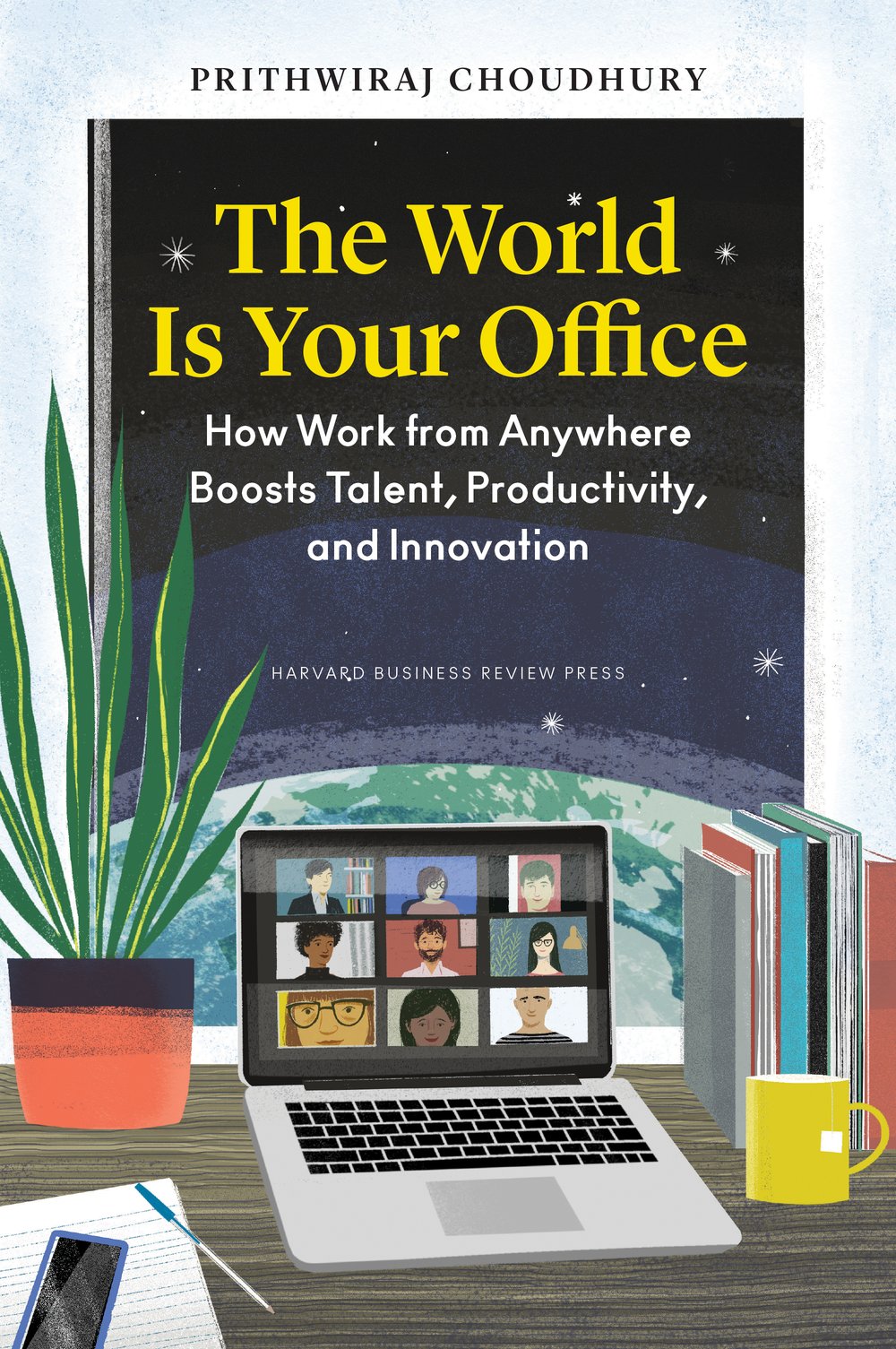The World Is Your Office
How Work from Anywhere Boosts Talent, Productivity, and Innovation

A research-based deep dive into a growing phenomenon – companies allowing employees to work from anywhere – and how those who adopt this model can boost talent, innovation, and productivity.
As the debate around remote versus in-office work rages on, leaders in a wide range of industries continue to implement radically flexible work practices, allowing most, if not all, of their employees to work from anywhere. Why? They understand that geographic flexibility offers a competitive advantage: the ability to attract and retain top talent globally.
In The World Is Your Office, Harvard Business School professor Prithwiraj Choudhury, who has been studying this phenomenon for over a decade, takes readers inside the trailblazing companies that are going all-in on work-from-anywhere (WFA) policies. From startups and nonprofits to government agencies and large corporations, Choudhury's research shows why and how these organizations – and their employees – are benefiting.
Drawing insights from this pioneering research, Choudhury also provides an extensive playbook for implementing successful WFA policies, offering leaders concrete strategies to:
- Use WFA as a means of hiring and retaining the best talent
- Effectively manage WFA teams, share knowledge, and combat isolation
- Leverage AI and automation to extend WFA into manufacturing and other deskless roles
- Design programs that attract talent to different regions
Filled with actionable insights and extensive case studies, The World Is Your Office empowers leaders to embrace the future of work.

Prithwiraj (Raj) Choudhury is a globally recognised expert on the future of work, serving on the faculties of both the Wharton School and Harvard Business School for over a decade. His research focuses on management practices and technologies that support work-from-anywhere and hybrid work arrangements and how companies, communities, and countries are competing for remote workers. In 2023 Forbes included him in its Future of Work 50 list, and in 2024 he was included in Time magazine's Charter 30 list of thought leaders shaping the future of work. His research has been cited by the BBC, CNBC, Freakonomics, the New York Times, the Wall Street Journal, and the Washington Post, among others.
